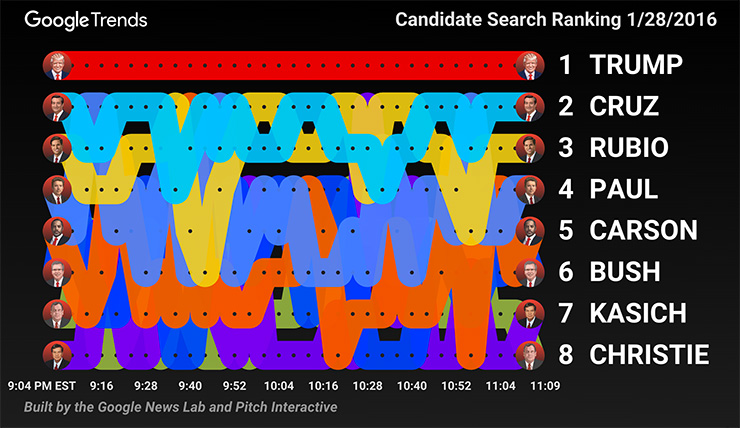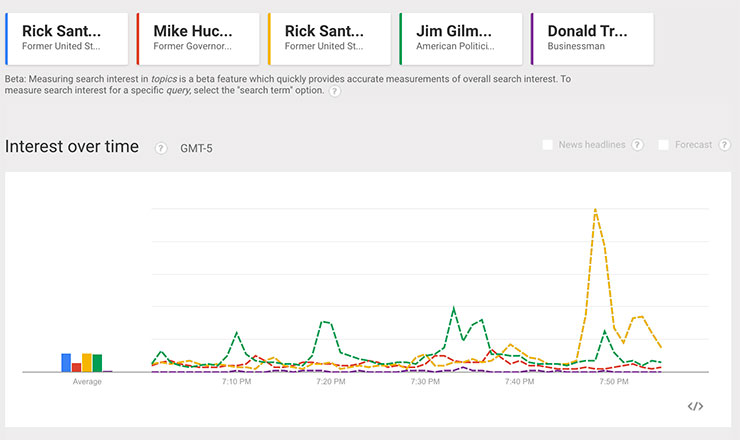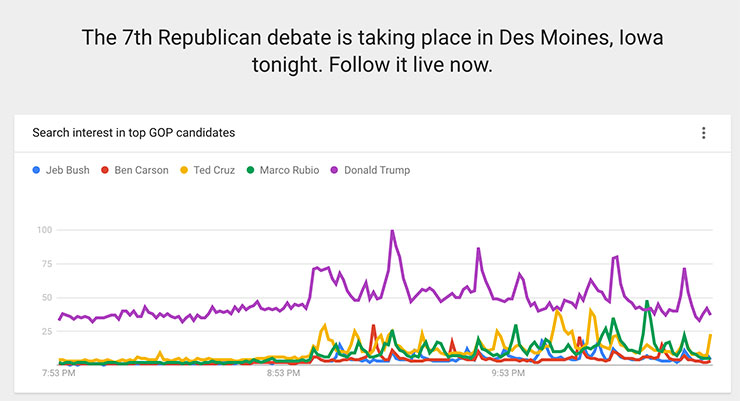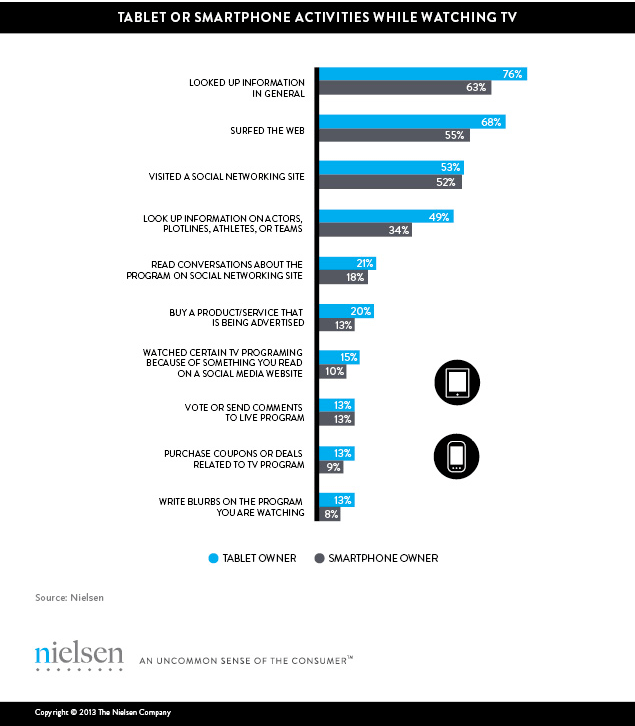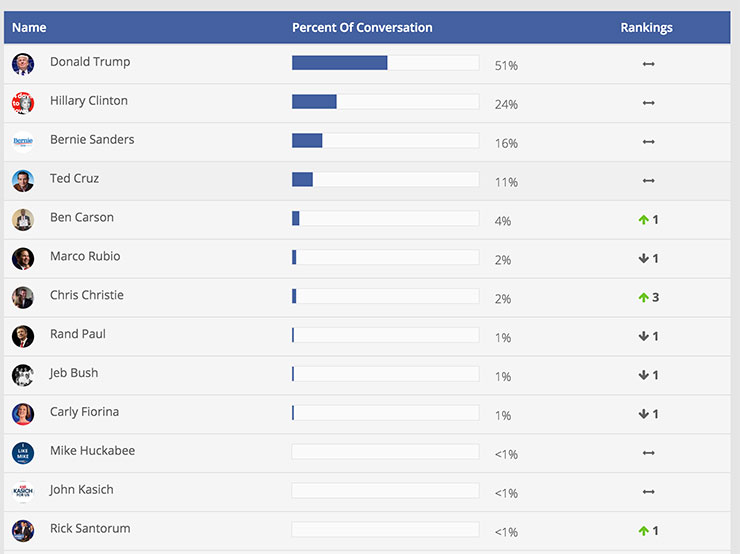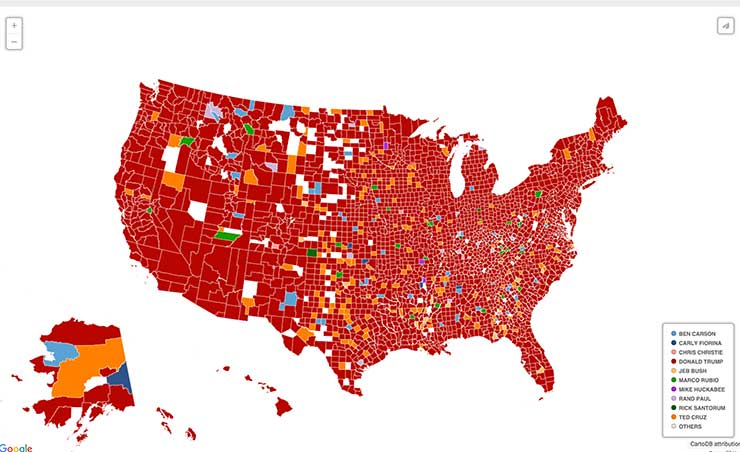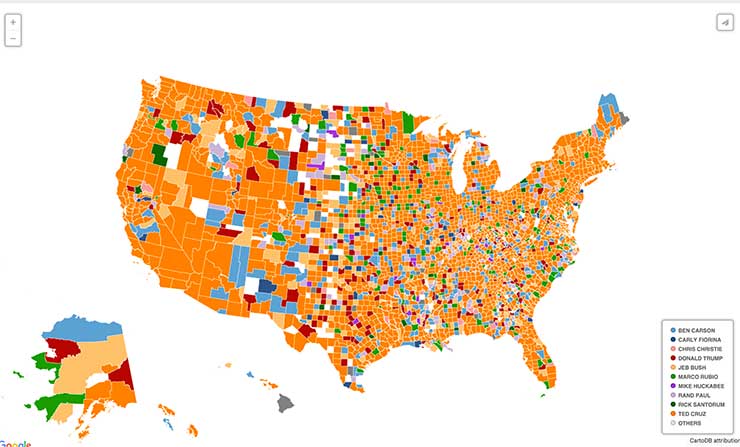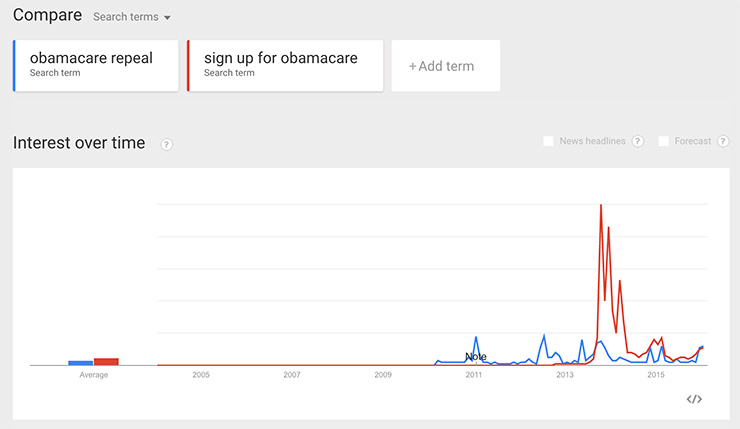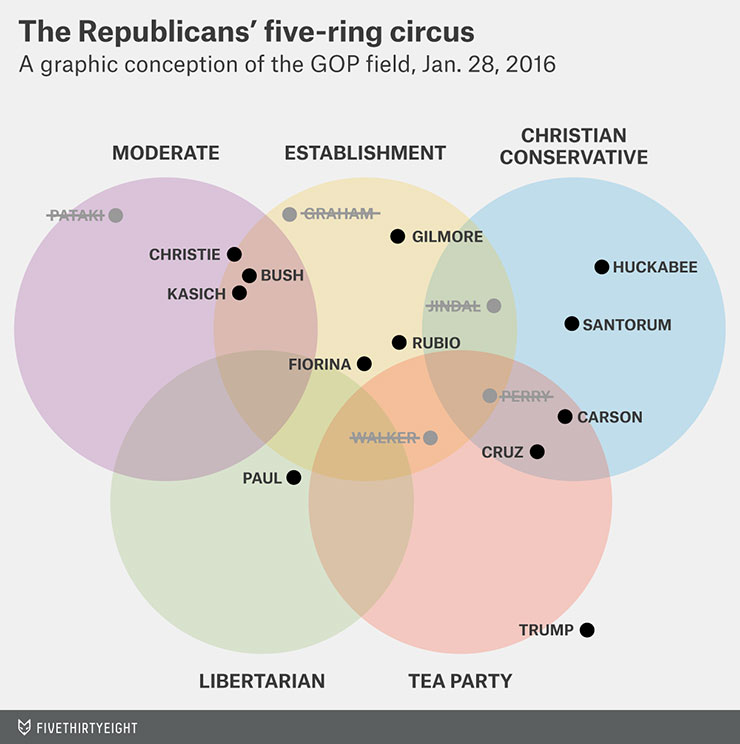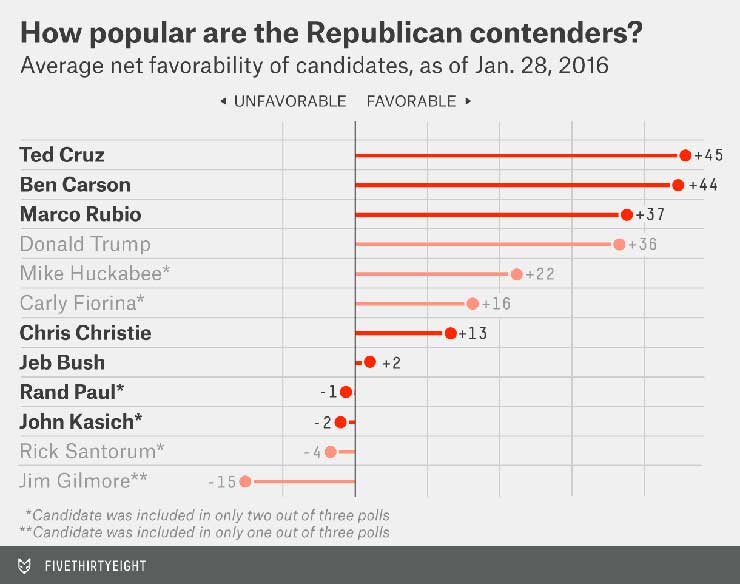Digital Impact and Equity of Donald Trump: Post Republican Debate #GOPdebate
Up until this point, I have not really paid much attention to both the Republican and Democratic debates for their respective party nominations. But the biggest thing that caught my attention was the decision by the Trump camp they were not going to take part in the live debate hosted by Fox News. He decided to boycott the debate and host his own television show for the Wounded Warriors Project.
A few things that is fascinating about Trump’s campaign:
- He is absolutely is challenging the media head-to-head and winning. The more he boycotts, the more attacks the media…the more they write about him because they need his digital presence. They media organizations need his digital influence (his audience clicking to read) for both readership and revenue; they are cashing in big mainly because of his ability to challenge them head-to-head.
- He has not needed to spend any advertising dollars because his message and approach are leveraging the clash resulting in a tremendous earned media position.
- He is taking David Plouffe’s approach leveraging digital and targeting to the next level during this election cycle.
So…here is what I found during the debate on Thursday, January 28, 2016, hosted by Fox News. There were two debates separated by a thirty minute show. I am going to use digital screen grabs from Google Trends, Facebook Signal, and Twitter to let the numbers lead the way.
Here are two screen grabs from Google Trends during the course of both debates. Notice during the first debate Donald Trump was barely searched on Google, but during the second debate…Donald Trump noticed a huge uptick in search. The second debate started at 9pm on Fox News and Trump broadcasted the Wounded Warrior Project on CNN at 9pm, thus the uptick in search during the 9pm slot. What can you learn about these two graphs, if the media hates him so much and don’t want him to win, then they should stop publishing content about Trump. Honestly, they need him to win…it is great for business.
The second debate started at 9pm on Fox News and Trump broadcasted the Wounded Warrior Project on CNN at 9pm, thus the uptick in search during the 9pm slot. What can you learn about these two graphs, if the media hates him so much and don’t want him to win, then they should stop publishing content about Trump. Honestly, they need him to win…it is great for business.
Nielsen shared a piece of research in 2013 that supports how television and online search are are related. Specifically the reason I am sharing this research below…to show how the Trump camp is leveraging digital search during primetime television. The Trump camp knows why it is a better position to take part in search during 9pm and leverage the conversation in two places.
Trump was live at 9pm for the Wounded Warrior Project on CNN and Fox News (along with many of the candidates) continually mentioned his name during the debate. His name was mentioned 27 times. Here is the complete transcript (CLICK HERE).
Kelly brought it up in the very first question. She asked Ted Cruz:
Senator Cruz, before we get to the issues, let’s address the elephant not in the room tonight. Donald Trump has chosen not to attend this evening’s presidential debate. What message do you think that sends to the voters of Iowa?
Cruz responded with a lot of thanks for the hospitality of supporters around the nation, and then turned to a roundabout answer, apparently trying to kill multiple birds with a single stone, remarking:
Now, secondly, let me say I’m a maniac and everyone on this stage is stupid, fat, and ugly. And Ben, you’re a terrible surgeon. Now that we’ve gotten the Donald Trump portion out of the way…
So here is my point, Trump’s name was being mentioned and shown repeatedly in two prime time locations. This influenced search with individuals leveraging smart phones to jump online and learn more about Trump. Fox News debate attracted 12.5 million viewers and Donald Trump’s live event attracted 2.7 million viewers. Both were influencing Google search.
During the debate, I opened Facebook Signal to see if the percentage of conversation had changed, but if you notice…Donald Trump was still holding the largest percentage of conversation.
The next thing I noticed inside Google Trends was the ability to look at the most searched individuals across the United States.
If you look at the colors below, Donald Trump (Red) as the most searched and Ted Cruz (Orange) is the second most searched.
Fox News built a question around Google search data for repeals of policies and emphasized that Obamacare led the list. Here is the question from Fox News Debate:
But Google search data is relative, and it’s not clear how many people are searching for any kind of policy repeal. For instance, far more Americans over the past few years have searched for “sign up for obamacare” than for “obamacare repeal.”
Another data point to bring to the forefront is one from the FiveThirtyEight.com blog. This will give you a better understanding where each of the Republican candidates lie based on beliefs, policies, etc and how they intersect with the rest of the field.
I also find this interesting the popularity of each of the Republican candidates, as of Jan. 28, 2016.
My favorite quote of the night was from Governor Kasich. It was based on his reference to faith and this response during an interview from June 2013.
Here is that response based on a question from Fox News about his faith and how it relates to his policy.

